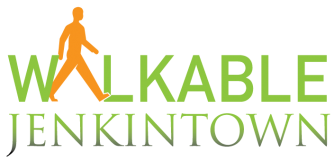This article is republished by permission.
During the holiday season, Fort Worth Report journalists are remembering their favorite stories of 2022. Click here to read more essays.
Fort Worth residents have been responsible for shouldering the full cost of sidewalk repairs in front of their homes and businesses, or face misdemeanor citations, for more than 60 years. Now, the city is considering a 50-50 cost share program with a particular emphasis on low-income homes, seniors and disabled residents.
I first learned about the plight of Cowtown’s cracked sidewalks when I moved into a home in 76104 and started taking daily walks. In some parts of my neighborhood, the path was smooth and fresh; in others, the concrete had cracked and disintegrated so much I hardly recognized it as a sidewalk.
Sidewalks in front of rentals, in particular, were often littered with large fractures and divots, the rentals’ owners far away from the realities of the area. A renter myself, I couldn’t help but notice the sidewalk beside my home didn’t look as polished as my home-owning neighbors.

So I hit the stacks like any good government reporter would. What I found surprised me: Fort Worth has required private homeowners to maintain sidewalks since the 1960s, but stopped enforcing the penalties included in that ordinance several decades ago. What’s resulted is a patchwork of sidewalks in various states of disrepair across the city, with little recourse for owners with lower incomes or disabilities.
I spoke to a disabled activist about the problem in June, who told me it shocked her how much worse Fort Worth’s sidewalks were compared to where she went to college in Austin. Our conversation prompted me to research what other Texas cities do and present their policies in a June article on the subject.
It came as a pleasant surprise when, four months after publication, city staff presented a proposal to city council to establish a cost-sharing program similar to Dallas. Under the proposal, the city would use a portion of the fiscal year 2023 PayGo funding, totaling $2.6 million, to develop the program.
The best part of being a local journalist is seeing the impact your reporting has in your own community. I can imagine a future where, 10 years from now, my walks through my neighborhood will be on new, secure concrete, without a crack in sight. Until then, I’ll keep walking on these uneven paths and reporting on the issues that matter most to the city I love.
Emily Wolf is a government accountability reporter for the Fort Worth Report. Contact her at [email protected] or via Twitter. At the Fort Worth Report, news decisions are made independently of our board members and financial supporters. Read more about our editorial independence policy here.
This article first appeared on Fort Worth Report and is republished here under a Creative Commons license.![]()




